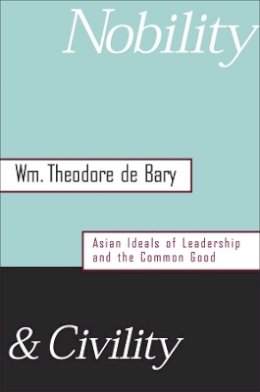
Stock image for illustration purposes only - book cover, edition or condition may vary.
Nobility and Civility
Wm. Theodore de Bary
€ 58.27
FREE Delivery in Ireland
Description for Nobility and Civility
Hardcover. Num Pages: 208 pages. BIC Classification: 1F; JHM. Category: (P) Professional & Vocational. Dimension: 216 x 138 x 26. Weight in Grams: 484.
Read more
Globalization has become an inescapable fact of contemporary life. Some leaders, in both the East and the West, believe that human rights are culture-bound and that liberal democracy is essentially Western, inapplicable to the non-Western world. How can civilized life be preserved and issues of human rights and civil society be addressed if the material forces dominating world affairs are...
Product Details
Publisher
Harvard University Press United States
Number of pages
208
Format
Hardback
Publication date
2004
Condition
New
Weight
483g
Number of Pages
272
Place of Publication
Cambridge, Mass, United States
ISBN
9780674015579
SKU
V9780674015579
Shipping Time
Usually ships in 7 to 11 working days
Ref
99-1
About Wm. Theodore de Bary
William Theodore de Bary was John Mitchell Mason Professor of the University, Emeritus, and Provost Emeritus at Columbia University.
Reviews for Nobility and Civility
By addressing the fundamental question of whether Asian values can enrich liberal concepts such as liberty, rationality, human rights, and the due process of law, de Bary makes a significant contribution to the current dialogue among civilizations.
Tu Wei-ming, Harvard University Since the clash of cultures has replaced the wars of nationalism, whoever wants to be intelligent about...
Read moreTu Wei-ming, Harvard University Since the clash of cultures has replaced the wars of nationalism, whoever wants to be intelligent about...
